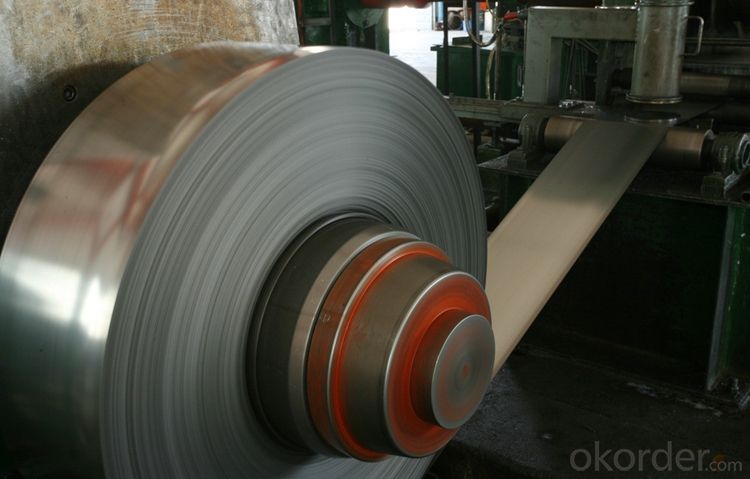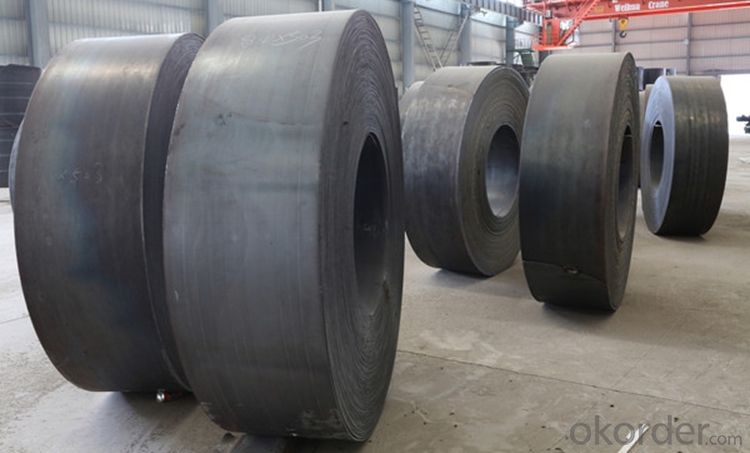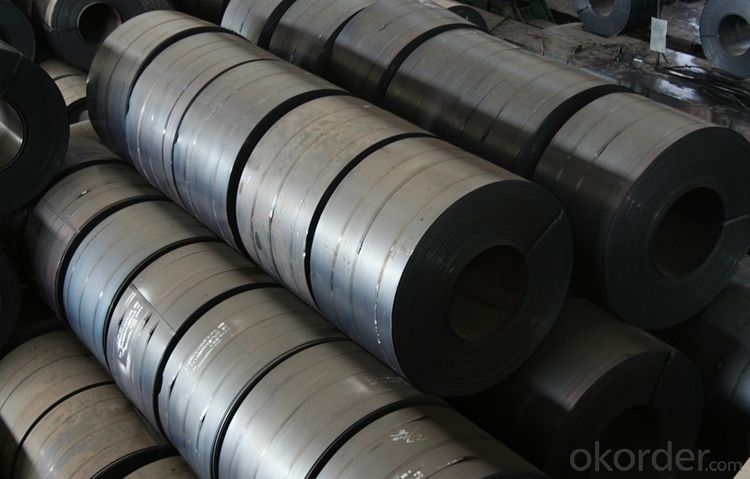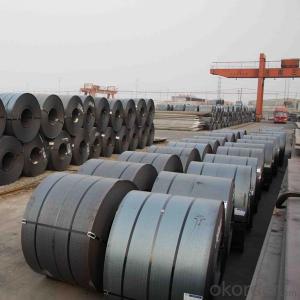Steel Plates,Steel Sheets,Steel Coils in Hot Rolled SS400 from China
- Loading Port:
- China main port
- Payment Terms:
- TT OR LC
- Min Order Qty:
- 27 m.t.
- Supply Capability:
- 10000000 m.t./month
OKorder Service Pledge
OKorder Financial Service
You Might Also Like
Item specifice
DESCRIPTION FOR CARBON STEEL PLATE
Production | hot rolled steel coils ss400 |
Port | Tianjin, China |
Category | Minerals & metallurgy |
Thickness | 1.8-16mm |
Width | 1000-1500mm |
Coil Weight | about 23 tons |
Material Grade | SS400\Q235\Q345B |
Technique | Hot Rolled |
Standard | GB ,JIS |
Test | With Hydraulic Testing, Eddy Current , Infrared Test |
Surface | 1) Bared 2) Black Painted (varnish coating) 3) Galvanized 4) Oiled |
Package | in bundles, strapped by strips. Or as customer’s requirement |
Sample | Common products, we can provide freely, for special production,we can depends on negotiation. |
MOQ | 50 tons |
Payment | 100% L/C at sight, 30% T/T in advance, and the balance against the copy of B/L or negotiation |
Delivery time | Within 10-25 days, according to quantity, asap save customer’s time |
Certificate | ISO |
TRADE TERMS :FOB, CFR, CIF
PACKING:
1.Big thickness:by bulk vessel
2.Small thickness:packed by steel strips and shipped by container
3.According to the requirements of customers'
PICTURES:



FEATURES OFSTEEL COILS
(1)Good ductility
(2)Good corrosion resistance
(3)Excellent abrasion resistance and fatigue strength
(4)Good weldability
(5)Oxidation resistant performance
(6)Excellent in high temperature
OUR SERVICE
1.High quanlity and reasonable price.
2.Customized on-demand.
3.Reasonable shipping and fast delivery.
4.Free sample.
FAQ:
Q:You are Factory or Trading Company?
A:We are factory,our main products include Steel plate,Steel Bar,Steel coils.
Q:What’s the MOQ?
A:Generally,the trail order will be accepted.The MOQ can be confirmed according to the different products.For example,the MOQ of rebar will be 25-50MT,the galvanized steel pipe will be 10MT,the stainless steel pipe will 1-5MT.
- Q:I personally don't believe the story of 8 guys who flew small planes can navigate passenger jets into buildings hundreds of miles away with that precision. It just doesn't make sense.I am wondering what the story surrounding the molten steel was, how could molten steel have been produced when fuel from the planes wasn't hot enough (it melts at 2850 degrees)?
- that's just it: there wasn't very much molten steel for the very reason you point out. Jet fuel burns at 800° to 1500°F. This is not hot enough to melt structural steel. However, engineers say that for the World Trade Center towers to collapse, their steel frames didn't need to melt, they just had to lose some of their structural strength. Steel will lose about half its strength at 1,200 degrees F. The steel will also become distorted when heat is not a uniform temperature. after the collapse, a LOT of folks took a look at the remains. the result was the conclusion that the fire caused the central core of the building to weaken. When the floors collapsed one on top of the other, the weight was too much for the weaked core to bear, causing the result we are all familiar with. hope this helps
- Q:What are the different types of steel coil slitting techniques?
- There are several types of steel coil slitting techniques, including rotary slitting, loop slitting, and double slitting. Rotary slitting involves using circular blades to cut the coil into narrower strips. Loop slitting is a method where the coil is fed through a looped pit, and the blades cut the coil as it passes through. Double slitting is a technique where two sets of slitting knives are used simultaneously to cut the coil into multiple strips at once. These techniques are used in various industries to create narrower and more manageable steel strips for further processing.
- Q:What are the different grades of steel used for making coils?
- There are several different grades of steel that are commonly used for making coils, depending on the specific application and requirements. Some of the most commonly used grades include: 1. Low carbon steel (also known as mild steel): This grade of steel is often used for making coils as it offers good formability, weldability, and machinability. It is suitable for a wide range of applications where strength and durability are not the primary requirements. 2. High carbon steel: This grade of steel contains higher levels of carbon, which provides increased strength and hardness. It is commonly used for making coils that require high strength and resistance to wear and tear, such as springs and automotive components. 3. Stainless steel: This grade of steel contains a high percentage of chromium, which provides excellent corrosion resistance. Stainless steel coils are commonly used in applications where resistance to rust and staining is crucial, such as kitchen appliances, automotive trim, and medical equipment. 4. Galvanized steel: This grade of steel is coated with a layer of zinc, which provides excellent corrosion resistance. Galvanized steel coils are commonly used in outdoor applications where exposure to moisture and other elements is a concern, such as roofing, fencing, and HVAC ductwork. 5. Electrical steel: This grade of steel is specially designed for use in electrical applications, such as transformers, motors, and generators. It has low levels of impurities and is optimized for high magnetic permeability and low core loss. 6. Advanced high-strength steel (AHSS): This grade of steel is engineered to provide exceptional strength while maintaining good formability. AHSS coils are commonly used in the automotive industry for lightweighting vehicles while ensuring structural integrity and crashworthiness. These are just a few examples of the different grades of steel used for making coils. The specific grade chosen will depend on factors such as the intended application, desired properties, and cost considerations.
- Q:What are the different types of steel coil loading and unloading methods used during processing?
- Some of the different types of steel coil loading and unloading methods used during processing include overhead cranes, forklifts, coil cars, and coil transfer systems.
- Q:Is steel easier to weld?Which is more brittle/less flexible?
- I can't weld steel to aluminum, and generally speaking I'd say the answer is no, however, there are some special procedures that can make a metallic bond between steel and aluminum, it can be done with explosive welding. A lot of multi-ply cookware is made with aluminum sandwiched between stainless steel, there is so much of it that I imagine there is another way besides explosives, but I don't know what. In any case it is not a normal workshop procedure. Steel is often considerably easier to weld, but it depends on the alloy. some steels are difficult to weld and some aluminum alloys are fairly easy, but on the average steel is easier. as far as brittle/ flexible it again depend on the alloy, some steels are less brittle than some aluminum alloys and the other way around. Steel does have a higher modulus of elasticity, so for a given size steel is stiffer, but that is for elastic deformation, for plastic deformation steel often has a higher yield strength, but some of the more exotic aluminum alloys can be stronger than low grades of steel.
- Q:How are steel coils used in the manufacturing of food processing equipment?
- Steel coils are used in the manufacturing of food processing equipment as they provide a strong and durable material for constructing various components such as conveyor belts, mixing blades, and cutting tools. The coils are typically shaped, cut, and molded to create specific parts that can withstand high temperatures, heavy loads, and corrosive conditions commonly encountered in food processing.
- Q:what does steel have inside of it that makes it rust.I need the answer fast!!!!!!!!!
- Steel is made by refining iron. Iron is mined as a red powdery ore. Unfortunately, when moisture and oxygen are present, the steel attempts to revert to its original state.
- Q:What are the common transportation defects in steel coils?
- Steel coils can experience various transportation defects. Improper handling or securing during transportation is a major cause of coil damage, resulting in dents, scratches, or tears in the steel. Coil edge damage is another issue that arises when the coils lack proper protection or rub against each other during transit, leading to deformation or breakage of the edges. Additionally, coil shifting occurs when the coils are inadequately secured or braced, causing them to move and shift during transportation, potentially causing misalignment or damage. Moreover, coil corrosion is a prevalent defect that arises when the coils are exposed to moisture or corrosive elements during transportation, leading to rust and deterioration of the steel. To prevent these common transportation defects in steel coils, it is essential to implement appropriate handling, securing, and protection measures.
- Q:What is the maximum width of a steel coil?
- The maximum width of a steel coil can vary depending on factors such as manufacturing capabilities and customer requirements. However, in general, steel coils can have a maximum width ranging from 30 inches to 96 inches or even wider.
- Q:Hi, I would like to know if steel is an important material in desalination plants. If it is, could you specify what type of steel is used (i.e. flat steel products, long steel products, etc). Thanks.
- yes stainless steel pipes
1. Manufacturer Overview |
|
|---|---|
| Location | |
| Year Established | |
| Annual Output Value | |
| Main Markets | |
| Company Certifications | |
2. Manufacturer Certificates |
|
|---|---|
| a) Certification Name | |
| Range | |
| Reference | |
| Validity Period | |
3. Manufacturer Capability |
|
|---|---|
| a)Trade Capacity | |
| Nearest Port | |
| Export Percentage | |
| No.of Employees in Trade Department | |
| Language Spoken: | |
| b)Factory Information | |
| Factory Size: | |
| No. of Production Lines | |
| Contract Manufacturing | |
| Product Price Range | |
Send your message to us
Steel Plates,Steel Sheets,Steel Coils in Hot Rolled SS400 from China
- Loading Port:
- China main port
- Payment Terms:
- TT OR LC
- Min Order Qty:
- 27 m.t.
- Supply Capability:
- 10000000 m.t./month
OKorder Service Pledge
OKorder Financial Service
Similar products
New products
Hot products
Related keywords
































